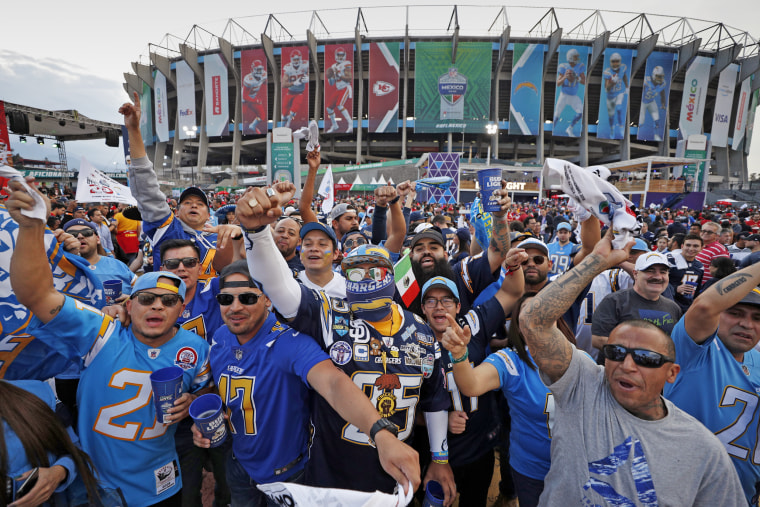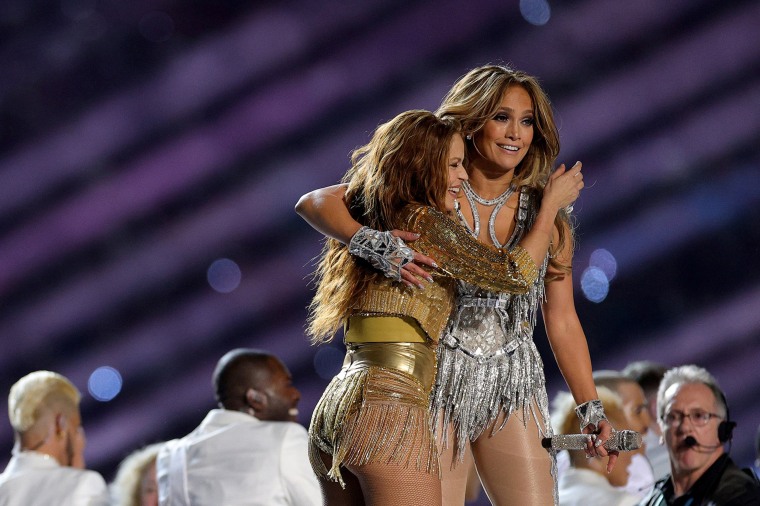The city of Miami is known far and wide for its Latin spice. From Little Havana to South Beach, the community pulsates with a sabor (flavor) that has made it an international, cosmopolitan center. This element was certainly felt by those who visited South Florida for Super Bowl LIV. This flavor was also felt within Hard Rock Stadium, as the halftime show pulsated with the unabashedly Latinx rhythms of Jennifer Lopez and Shakira. It will certainly be remembered as one of the most impressive performances of the past decade.
There are two principal reasons for the lack of Latinos in collegiate and professional football: economic pressures and, until recently, many collegiate scouts did not spend much time scouting players in heavily Latino areas.
While this Super Bowl was surrounded by many things Latinx, no Latino players started on the field for either the winning Kansas City Chiefs or the San Francisco 49ers. Over 25 million Latino-Americans consider themselves NFL fans. So why the disconnect? For one thing, the number of Latinos playing high school and collegiate football, though increasing over the past 25 years, still remains relatively small. And high school and especially collegiate football remain important professional pipelines. Generally speaking, however, there are two principal reasons for the lack of Latinos in collegiate and professional football: Economic pressures can make playing high school sports difficult and, until recently, many collegiate scouts did not spend much time scouting players in heavily Latino areas.
Certainly, Latino and Latina athletes in America are known for playing baseball and soccer, but those are not the only games we play. The game, in many locales, has been associated with “being an American.” Thus, Latinos started playing football in the early 20th century not just for the sheer joy of competition, but also as a way to prove their assimilation into American society. Indeed, the history of Latino participation in the NFL dates to the 1920s, when Ignacio Saturnino “Lou” Molinet lined up for the Frankford Yellow Jackets in 1927.
He was followed by players such as Joe Aguirre and Eddie Saenz, as well as Hall of Famers such as Steve Van Buren and Tom Fears. Into the 1950s and 1960s, we saw others star gridiron players, such as Danny Villanueva and “Mean” Gene Brito. By the 1970s and 1980s, other Latinos such as Gabe Rivera, Efren Herrera, Luis Sharpe, Ralph Ortega and Tony Casillas made their mark on the field. In recent years, players such as Anthony Calvillo (in the Canadian Football League), Tony Romo, Ron Rivera and Tony Gonzalez were stars of the highest order.
When it comes to the Super Bowl, several names have stood out. For example, Tom Flores, of Mexican descent, was the backup quarterback for the Kansas City Chiefs during their 1969 victory against the Minnesota Vikings and later went on to become the first minority head coach to win a Super Bowl (he won two as coach of the Oakland Raiders). For the Vikings in that Super Bowl, Minnesota started quarterback Joe Kapp, whose mother was of Mexican descent.
While all of the above contributed to the history of the championship game, the two most significant Latinos with ties to the Super Bowl are Tom Flores and Jim Plunkett.
Anthony Munoz (a Hall of Fame offensive tackle) played for the Cincinnati Bengals against the San Francisco 49ers in two Super Bowls. More recently, Louis Vasquez played for the Denver Broncos in two Super Bowls, and Juan Castillo, of Mexican descent, was part of the coaching staff with the Baltimore Ravens when they won Super Bowl XLVII.
Brian Flores, the current head coach of the Miami Dolphins, was part of four championship teams with the New England Patriots, as a safety, linebacker coach and defensive play-caller.
The two most significant Latinos with ties to the Super Bowl are Tom Flores and Jim Plunkett (whose mother was Mexican American). Flores and Plunkett won Super Bowl XV, defeating the Philadelphia Eagles, 27-10, with Plunkett being named MVP. The two won the Super Bowl three years later, beating Washington, 38-9.
Although these men accomplished feats matched by few others in NFL history, they continue to be snubbed by those who select members of the Hall of Fame.
So while there may not have been any Latinos in this year's Super Bowl, our impact remains — not as well known as it should be, but there nonetheless.
Fortunately, stereotypes about the sports Latinos are “supposed” to play are changing as our population in the U.S. grows. Given the demographic changes taking place in our country, there are now more athletes named Rodriguez, Sanchez, Torrez and Martinez playing football all over the nation. It is only a matter of time before the next generation of Romos, Gonzalezes, Castillos and Riveras are playing and coaching in the NFL, and eventually making it to Super Bowls yet to come.

The NFL is also trying to take the game to Latino fans and athletes, playing regular season games in Mexico for years. And in the week leading up to the Super Bowl, the NFL put on an event called “100 Anos 100 Momentos” (“100 Years, 100 Moments”).
Jennifer Lopez and Shakira made history Sunday night from a musical perspective. Now it is time that Latino contributions on the field are recognized as well.

